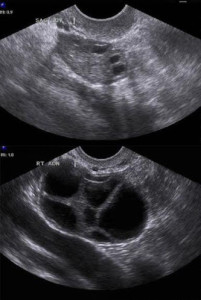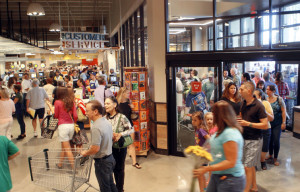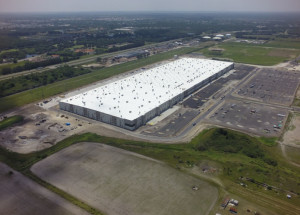I wrote an op-ed piece about egg donor compensation following a front page story in the New York Times about egg donation, which brought about a national discussion on the topic.

My ovaries were the size of grapefruits, the eggs inside them ultra-ripened by the fertility drugs I had injected. I was too bloated and sore to fit into a pair of jeans. I was an emotional train wreck.
But when I was admitted to the Women’s Center ward of Tampa General Hospital, it was not because there was something wrong with me. It was because there was something inside of me someone else wanted. My eggs.
And I couldn’t wait for the doctor to literally pluck them out of me.
After a 20-minute surgery, five of my eggs had been removed and were on their way to being fertilized. Nine months later, twin boys who looked at least half like me were born in the same hospital, but I’d never know them. They now live in Ireland.
I got what was promised to me: a check for $5,000, a price I should have every right to negotiate.
Women can receive up to $10,000 for their eggs in the United States, a cap that donors are challenging in federal court this year as outlined by a class action lawsuit. In the suit they accuse the two professional medical organizations that set guidelines for in vitro fertilization practices and the fertility clinics associated with them of illegal price-fixing.
The case could go to trial next year.
In my instance, of course I wanted to help a couple start a family, but what lured me to consider donating my eggs was the money. A couple grand could pay for a semester of college. It could be a down payment on a house. Or fund a trip overseas. It helped me pay off credit card bills. The money went too fast.
Last December, about a year after my egg donation, I returned to Tampa General Hospital to visit my cousin, who is just a year older than me and was having complications with her pregnancy. She had miscarried before, so the health of this baby boy was so important.
I stopped by the familiar hospital on my way home from speaking to a journalism class at the University of Tampa. I was tired, cramping and uncomfortable. But when I walked into the hospital room just a few doors down from where I had been admitted, I felt foolish.
My cousin Danielle was in real pain. Though she was stable, there was a serious risk to her child. Her pregnant sister sat next to her in a chair. My aunt stood over her two big-bellied girls.
Sure, I was sore and bloated. My menstrual cycle was irregular and painful. I was still dealing with the aftereffects of having been an egg donor. I couldn’t find a birth control method that was both comfortable and effective in this new and temperamental post-donation body of mine. But my lingering pain was nothing compared to what they were going through.
Wasn’t this why I had decided to donate my eggs in the first place? To help a woman who struggled to conceive on her own?
After my donation, the agency that recruited me offered me $7,500 to donate again, this time to a gay couple in France. When I declined, the price went up. I’m 27 now, and I’ve met egg donors who have donated more than six times, and were paid anywhere from $3,000 to $10,000 for their eggs. They donated at clinics in Florida and some were flown to California for two weeks and a surgery.
There have been cases where the graduate of an elite university like Stanford or Harvard has made $50,000 or more for donating eggs. Some egg donors negotiate in contracts to keep and freeze some of the eggs collected for themselves. Sometimes unused but fertilized eggs are donated to another couple or an embryo donation clinic without the consent of the original egg donor. There are no absolute rules here, but the majority of fertility clinics stick to the guidelines and cap compensation at $10,000 per donation.
This federal lawsuit, and recent articles in the New York Times, shed light on the evolving, mostly unregulated world of the $3 billion fertility industry, where technology now exists to test embryos for genetic diseases and prospective parents can literally select the attributes they want in their child through egg and sperm donors. I know I was picked for my long legs and blonde hair.
This isn’t a question of whether or not egg donation should be legal. It’s here and it’s not going away. The science has helped cancer survivors, infertile women and same-sex couples participate in child-rearing from the start — from in the womb — in ways that would otherwise not be possible for them.
It’s not all that uncommon to hear stories about IVF cycles and children born of donor sex cells as more parents postpone childbirth until later in life. Donated eggs were used in 20,000 monthly IVF cycles in 2012, compared to fewer than 12,000 used a decade earlier, according to data from the Centers for Disease Control and Prevention.
With 7.3 million people experiencing fertility trouble in the United States, it’s no wonder egg donation has become an $80 million market.
So why shouldn’t the women who donate their time, and assume the health risks associated with hormone injections and a minor surgery, dictate the price they should be paid? Despite the opportunity to make more money, I chose not to donate again. I wound up in the ER shortly after my donation cycle because of a ruptured cyst, a minor aftereffect, but a painful and scary one nonetheless. That’s nothing compared to ovarian hyperstimulation syndome, a painful swelling of the ovaries, which in rare cases can lead to hospitalization or death.
But I do believe donors should have the right to negotiate our own compensation. And knowing what I know now, if I were to “donate” again, I would charge more — a lot more.
The laws surrounding exchanges like this vary from state to state, though it’s illegal to sell any bodily tissue for money in the United States. Fertility clinics skirt such rules by calling it a donation. As a donor, the $5,000 I received was compensation for my time and discomfort.
The process is much more involved than donating sperm and, thus, the compensation should be. This discussion seems eerily reminiscent of the more mainstream conversations about abortion. If a woman has decided to donate her eggs in exchange for money, whether it be to another woman, to an egg bank or even for research, then she is exercising her right to do so. No one else should step in to make that decision for her or declare its worth.
Science is lengthening our lives and eliminating diseases. In this case, it’s also creating a booming babymaking industry. Doctors stand to make thousands from couples who choose this route for family planning. It’s given birth to new businesses — agencies that specialize in pairing egg donors and surrogate mothers with prospective parents.
It prompts the question: What’s next?
If women are allowed to openly sell their eggs, are we potentially creating a market to sell other organs, too? What’s the difference between legally selling a kidney and selling an egg, if the individuals are willing to do so and will be compensated?
I don’t think I would donate a kidney for money, even though I donated my eggs for cash. But if my cousin needed a kidney, I wouldn’t hesitate.
Danielle eventually gave birth to a beautiful and healthy baby boy. Her sister delivered a healthy baby girl shortly after. When I look at these youngsters at family gatherings, I’m reminded of the two boys out there in the world that came from my egg donation. The money may be gone already, but they’re alive and well with parents who wanted them so much, they were willing to spend thousands of dollars to bring them into this world. And I’m okay with that.
Justine Griffin is a business reporter with the Tampa Bay Times. She wrote a long-form piece about her experience as an egg donor for the Sarasota Herald-Tribune last year. Read more about her egg donation at costoflife.heraldtribune.com.




